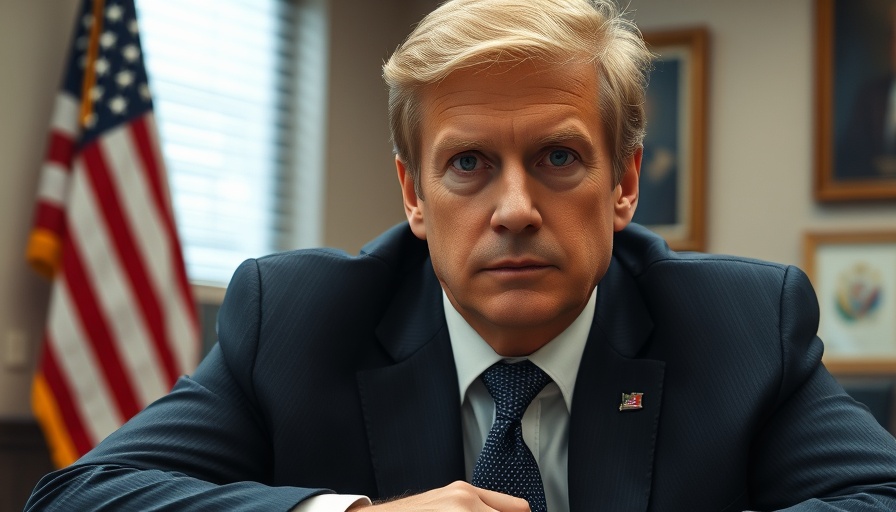
The absurdity of assuming employer health insurance
A Republican Senator has faced waves of ridicule online for wrongly assuming that millions of Americans dropped from Medicaid will magically find employer-sponsored health insurance. Senator James Lankford of Oklahoma suggested during a recent CNBC segment that those losing their Medicaid coverage due to President Trump's proposed spending bill would transition seamlessly into jobs that provide healthcare benefits. But is that really the case?
In a society where many employers do not offer health insurance—especially in low-wage jobs—Lankford’s statement raises important questions about the reality faced by the millions impacted. According to a 2020 survey, nearly 57% of low-wage workers are in jobs that do not provide health coverage. This suggests a large percentage of those transitioning from Medicaid may be left without health insurance altogether. Social media users quickly chimed in, pointing out the obvious flaw in Lankford's argument.
Understanding the nuances of Medicaid
Medicaid is not just a safety net; it’s a lifeline for many vulnerable citizens in the U.S. The program provides necessary medical care to low-income individuals and families, covering everything from preventive services to long-term care. Eliminating access to Medicaid without a solid plan in place for employer-sponsored healthcare is deeply concerning. Many employers don’t provide insurance, and for those that do, benefits often come with high premiums and deductibles that low-income workers can't afford.
Who really benefits from employer insurance?
While employer-sponsored health insurance has its advantages, not everyone is privy to those benefits. The conversation about employer insurance often ignores the realities of part-time jobs or low-wage positions that dominate the job market. Many jobs filled by those who would be transitioned from Medicaid may not offer health benefits at all, leaving these vulnerable individuals without critical access to care. The gap between what is promised and what is realized can be devastating for families relying on Medicaid.
The reality of employer health insurance
It’s important to underscore that relying on employer-provided health care can lead to illusions of coverage. Just because a job offers health insurance doesn’t mean it’s affordable or comprehensive. Plans may come with a host of fees and conditions that can leave employees struggling. Moreover, not all jobs provide health insurance. The assumption that job seekers will naturally find jobs with benefits reveals a profound disconnect with the current job landscape.
Real individuals affected by policy changes
Beyond statistics, real stories illuminate the human impact of policies affecting Medicaid. Consider single parents working multiple jobs, struggling to meet basic needs. They often find themselves in minimum-wage positions that do not offer health benefits. When they lose Medicaid without viable options for employer-sponsored insurance, they’re thrust into a vortex of uncertainty, potentially foregoing necessary medical treatment.
Proposed changes: overlooked consequences
The rhetoric surrounding health care reform often glosses over the risks involved with sweeping legislation. When lawmakers talk about transitioning people away from Medicaid, they must consider the consequences of leaving families without any form of insurance. A comprehensive understanding of the healthcare landscape is essential, but that requires policymakers to listen to the voices and lived experiences of those they represent.
The social discourse around healthcare
The responses on social media reflect a collective disbelief at the disconnection between politicians and the challenges faced by ordinary citizens. Many users conveyed their frustration, encapsulating the tension between government narratives and lived experiences. Social discourse around healthcare reform must not only be informed by political goals but by the actual needs and barriers that people face.
Time for a change in perspective
Health policies need to shift from abstract ideas to a grounded focus on real-world implications. The idea that millions can simply move from Medicaid to employer insurance is not just naive; it's a dangerous oversimplification. There is an urgent need for policymakers to hear the realities people face and create structures that better support health accessibility.
As the conversation grows, it’s vital for citizens to engage with their lawmakers about these pressing issues. Ask hard questions and demand more than just political platitudes. Your health and the health of those around you depend on it.
 Add Row
Add Row  Add
Add 




Write A Comment